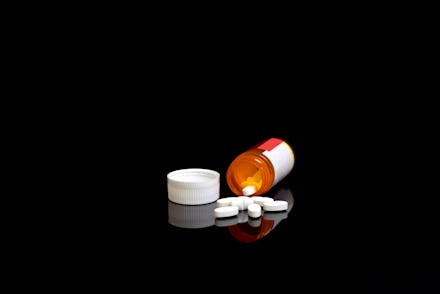The pandemic has led to a horrifying spike in opioid overdoses

When the COVID-19 pandemic began last year, the U.S. was already fully embroiled in the opioid epidemic. Most experts suspected from the beginning that lockdown orders and social distancing would be hard on people with substance use disorders, but it’s only now that we’re learning just how devastating and deadly the pandemic has been for people who are battling drug addiction. A new study uncovered that opioid overdoses are 29% higher than before the pandemic, ABC reported.
The research, which was released last week in the Journal of the American Medical Association Psychiatry, analyzed nearly 190 million emergency department (ED) visits from March 2020 to October 2020. What they found was that opioid overdose cases were up by 29% total for the year, which is a 45% increase from the same period last year. So, not only did the total number of opioid overdose related hospital visits increase between 2019 and 2020, but that they almost doubled from the same months of the previous year.
Consider that, according to the Mayo clinic, 80% of Americans are fearful of going to the ER for fear of catching COVID-19 and that, overall, non-COVID ER visits have decreased since last year. To be clear, that means that in a moment in which most people don’t want to, or aren’t willing to, go to the hospital, it appears that more people than ever before went to the ER for opioid overdose issues. And back in December, the CDC reported a 39% increase in deaths due to opioid overdose for 2020.
This all leads me to suspect that as harrowing as these numbers are, they don’t even come close to showing the full picture. Two people I care about have died of opioid overdose in the past year and neither of them went to the hospital. That is, of course, anecdotal, but I have heard about similar tragedies from others in my community. The unfortunate reality is that a lot of people don’t seek any form of medical treatment when they use drugs because of the stigma attached to substance use and that some ERs don’t even treat what they call, “addiction medicine.”
It’s crucial in this moment to remember that what is an inconvenience for some is a death sentence for others. “The disruption to daily life due to the COVID-19 pandemic has hit those with substance use disorder hard,” CDC director Robert Redfield, said in a press release in December. “As we continue the fight to end this pandemic, it’s important to not lose sight of different groups being affected in other ways. We need to take care of people suffering from unintended consequences.”
It’s not just the “unintended consequences'' of substance use that are at play here. This phrasing is subtle victim-blaming that suggests that overdose is a consequence of a person’s totally autonomous and independent choice to use substances.
That’s not how it works, y’all. Substance use disorder is a social issue. And the same study of ER visits also showed that visits for mental health conditions, intimate partner violence, suicide attempts, and child abuse also increased, so it’s not just people who take drugs who are dying. All the people who have been marginalized by medicine are suffering.
So, really, we need to take care of people. Period. Check on your friends. Check on your neighbors. If you don’t know how to help, contact a local harm reduction or mutual aid organization. If you need to talk to a professional about resources for yourself or a loved one, call SAMHSA's hotline at 1-800-662-HELP. There’s someone there 24/7/365. And if you have an overdose, please call 911.